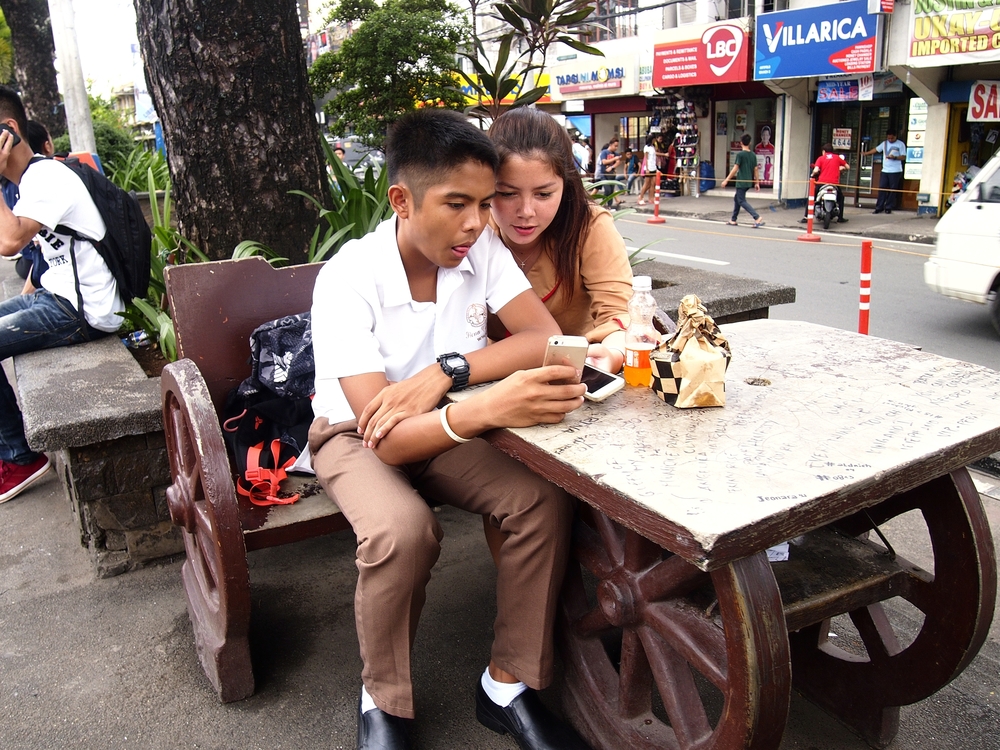Life Stages: Dating and Courtship
Picking a Partner
Dating is widely practiced in Filipino society. People start dating even before adolescence. In rural areas, people adhere to the religious and social rules more closely than in urban society. People date in karaoke venues, theaters, and restaurants. Girls under 28 years of age need to have a chaperone on their first dates, usually a friend or relative.
Public expressions of affection like kissing and caressing are not prohibited in the Philippines. The duration of a courtship depends on how soon the girl accepts the boy’s love. Traditionally, Filipino women are expected to be modest and shy and to possess good values, postponing professions of love until they are older.
If a man wants to marry someone he is dating, he traditionally has to convince her parents first. If they agree, he is supposed to offer gifts to her and her family every time he drops her off after a date. Once the marriage date is fixed, it is common to see a Philippine groom-to-be typically performing everyday jobs at the house of his bride-to-be in a tradition known as paninilbihan in order to confirm family approval of the marriage.
Sex before marriage is a topic of debate in the country between the Catholic Church and the government. The church called for a ban on the supply of condoms at high schools in the 1990s. In spite of efforts to keep information on sexuality away from children, most children become sexually aware fairly early, especially in bigger cities.
Children studying in boarding schools or colleges have a higher rate of premarital sex. Nearly 20 to 25 percent of all Filipinos have had premarital sex, and the rate appears to be rising as younger generations rebel against the pressure to retain their virginity. If the girl gets pregnant, strong efforts are undertaken to ensure that she marries the person who impregnated her. Among the Muslim community, premarital sex is totally forbidden.
Copyright © 1993—2025 World Trade Press. All rights reserved.

 Philippines
Philippines 